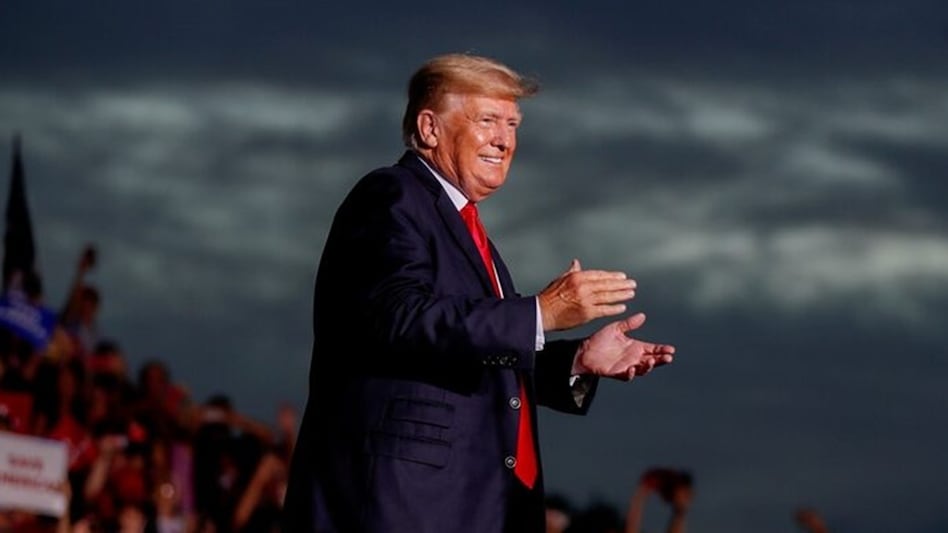'Bigger than Russia, richer than China': What Donald Trump’s US-Canada mega state would look like
The combined landmass would span 19.5 million square kilometers, surpassing Russia’s 17 million to become the largest in the world.

- Jan 9, 2025,
- Updated Jan 9, 2025 10:26 AM IST
Donald Trump’s vision of making Canada the 51st state of the United States, if it were to happen, would create a global giant like no other.
The combined landmass would span 19.5 million square kilometers, surpassing Russia’s 17 million to become the largest in the world.
Economically, the merged nations would boast a GDP of $27.6 trillion, dwarfing China’s $17.2 trillion. But while Trump touts the economic and security benefits of this union, Canadians are fiercely rejecting the idea.
A U.S.-Canada merger would eliminate the $33.5 billion trade deficit between the two nations and integrate resources, trade routes, and supply chains. Canada’s vast reserves of rare earth minerals, oil, and natural gas—combined with its position as the largest foreign supplier of energy to the U.S.—would make the new union a dominant force in global energy markets.
The combined economy would streamline trade by removing cross-border tariffs and reducing transaction costs, estimated at $3 billion annually. Canadian investments, already supporting 900,000 U.S. jobs, would multiply, creating unparalleled opportunities for growth and market expansion.
Obstacles to the Union However, the merger faces significant challenges. Politically, Canada’s parliamentary system and constitutional monarchy are fundamentally different from the U.S. presidential system, necessitating major constitutional changes. Socially, Canada’s strong national identity and universal healthcare system are at odds with American values, with 82% of Canadians opposing the merger in recent polls.
Economic integration would require harmonizing regulatory standards, fiscal policies, and currency systems, all of which could disrupt markets in the short term. Internationally, renegotiating treaties and adjusting military alliances would be an enormous undertaking.
Trump has positioned the merger as a strategic necessity. “You get rid of that artificially drawn line, and it would also be much better for national security,” he said, emphasizing economic stability and protection against global rivals like China and Russia.
But Canadian leaders are pushing back hard. Ontario Premier Doug Ford mocked the idea with a counteroffer: “How about if we buy Alaska? And we’ll throw in Minnesota and Minneapolis at the same time.” Outgoing Prime Minister Justin Trudeau dismissed the proposal entirely, saying, “There isn’t a snowball’s chance in hell.”
Donald Trump’s vision of making Canada the 51st state of the United States, if it were to happen, would create a global giant like no other.
The combined landmass would span 19.5 million square kilometers, surpassing Russia’s 17 million to become the largest in the world.
Economically, the merged nations would boast a GDP of $27.6 trillion, dwarfing China’s $17.2 trillion. But while Trump touts the economic and security benefits of this union, Canadians are fiercely rejecting the idea.
A U.S.-Canada merger would eliminate the $33.5 billion trade deficit between the two nations and integrate resources, trade routes, and supply chains. Canada’s vast reserves of rare earth minerals, oil, and natural gas—combined with its position as the largest foreign supplier of energy to the U.S.—would make the new union a dominant force in global energy markets.
The combined economy would streamline trade by removing cross-border tariffs and reducing transaction costs, estimated at $3 billion annually. Canadian investments, already supporting 900,000 U.S. jobs, would multiply, creating unparalleled opportunities for growth and market expansion.
Obstacles to the Union However, the merger faces significant challenges. Politically, Canada’s parliamentary system and constitutional monarchy are fundamentally different from the U.S. presidential system, necessitating major constitutional changes. Socially, Canada’s strong national identity and universal healthcare system are at odds with American values, with 82% of Canadians opposing the merger in recent polls.
Economic integration would require harmonizing regulatory standards, fiscal policies, and currency systems, all of which could disrupt markets in the short term. Internationally, renegotiating treaties and adjusting military alliances would be an enormous undertaking.
Trump has positioned the merger as a strategic necessity. “You get rid of that artificially drawn line, and it would also be much better for national security,” he said, emphasizing economic stability and protection against global rivals like China and Russia.
But Canadian leaders are pushing back hard. Ontario Premier Doug Ford mocked the idea with a counteroffer: “How about if we buy Alaska? And we’ll throw in Minnesota and Minneapolis at the same time.” Outgoing Prime Minister Justin Trudeau dismissed the proposal entirely, saying, “There isn’t a snowball’s chance in hell.”
